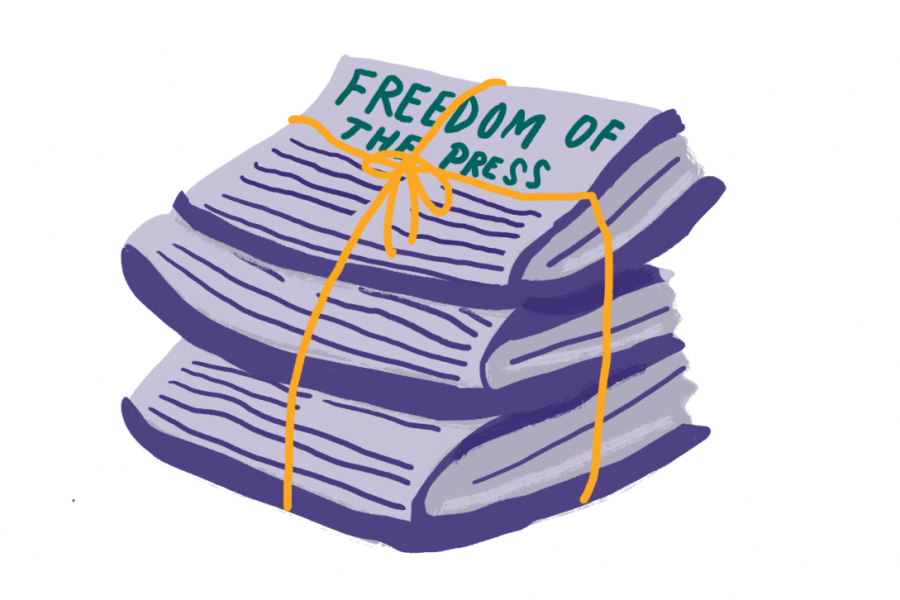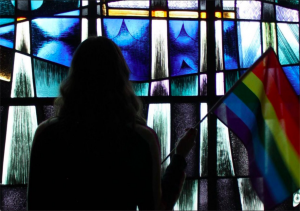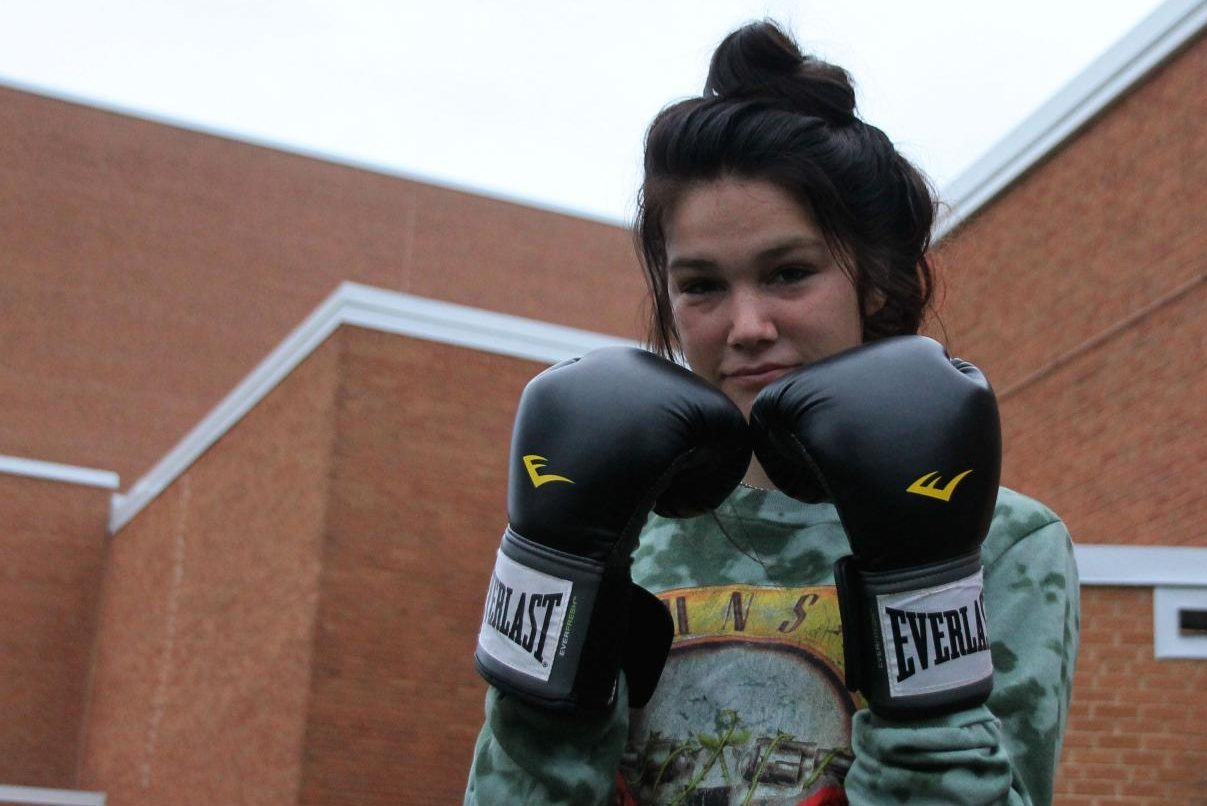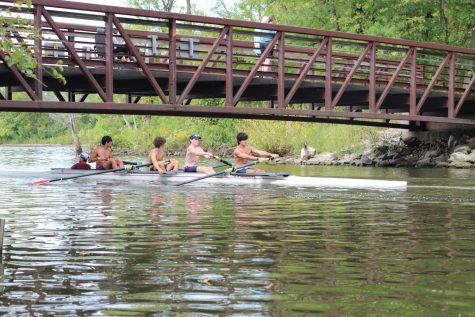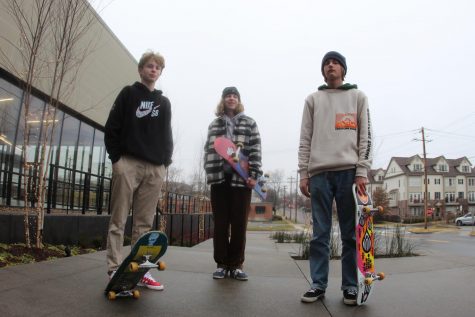In-depth: Controversial freedom
While there is no published school board policy, KHS journalism is a First Amendment school by practice, allowing TKC writers to be the voice of Kirkwood students.
Thirty years ago, a single student newspaper caught in the middle of a free speech showdown captured the attention of the entire nation. In 1990, Planned Parenthood reached out to 80 high schools in the St. Louis area, looking to place an advertisement in the student newspapers. Given the controversial history of Planned Parenthood, only eight publications accepted. TKC was one of them.
“This was not a willy-nilly decision that we made,” Michael Griffin, 1990-91 TKC editor-in-chief, said. “We gave it serious thoughtful consideration and debate. [The TKC staff] came to the conclusion that we would run [the ad].”
The ad featured the headline “It’s not enough to ‘just say no.’ Say KNOW,” followed by a hotline number for Planned Parenthood, a health clinic known for abortions. Originally, the advertisement was met with no hostility, running for over a month without incident. However, after a St. Louis Post-Dispatch article highlighted STL high schools that had accepted the ad into their paper, there was community uproar.
“There was a big article about how Planned Parenthood had sent out this advertisement,” Franklin McCallie, former KHS principal, said in a phone interview with Clayton Caringer Jan. 15, 2020. “Immediately, we began getting phone calls, and they were mainly negative.”
According to data collected by the KSD central office, KSD administrators received 48 calls and six letters against the publication of the ad immediately after the Post-Dispatch article. With the community in turmoil, former KSD Superintendent Thomas Keating was forced to make a decision: would he censor the TKC and demand the ad be removed or allow the staff to make the final decision?
“It was a very tough position for him to be in, as the superintendent,” Griffin said. “[However], at the end of the day, Keating backed our decision [to run the ad]. The district recognized our hard work and commitment we had done to evaluate the situation, and they decided to support us.”
By making this decision, Keating had settled the essential issue for TKC: the students, not the administration, controlled the publication. With Keating in support of the students, he set a precedent of free press within KSD.
“If [Kirkwood] had decided to say no [to the ad], it would have been disingenuous,” Griffin said. “[KSD] would be teaching students to be empowered in the real world, while doing otherwise in their actions.”
Former KHS science teacher Sharon Kang holds similar beliefs to Griffin. Kang, in TKC’s original response to the community backlash, was quoted in support of TKC, and she holds that opinion to this day. She believes the field of education should be used to teach the importance of providing information to all.
“One of the things I find so valuable about education is the freedom of expression and speech and thought,” Kang said. “That’s why we study history and literature, to get a deeper understanding of those who are not like us.”
With the KSD administration in support of the decision, TKC continued to run the advertisement, their platform free of administrative interference. In the following weeks, advocates from both sides fought for their opinion, including Planned Parenthood opposition advocates purchasing ads in TKC.
“We realized just how powerful our newspaper was,” Griffin said. “Our medium-sized high school newspaper was drawing attention at the national press level. We realized that the decision we had made could impact decisions made by other districts across the country.”
The tradition of student press freedom is still alive today, with the TKC editorial policy placing all final publishing power in the hands of the student editors. And while there is no published school board policy, KHS journalism is a First Amendment school by practice. TKC writers are allowed total freedom of speech, given the opportunity to be the voice of Kirkwood students. This is an idea Kang strongly supports.
“It concerns me if we are not listening to and seeking out people who think differently than we do,” Kang said. “We do not have to agree [but] unless we listen to other [ideas], it is hard to judge the ideas and their validity.”
Griffin supports the same idea, believing independent thinking is vital. He said student journalists should have full constitutional rights and the ability to make their own decisions.
“Schools like Kirkwood must remain open to reporting opposing views, reporting on different opinions whether you like them or not,” Griffin said. “To work together as a nation we have to be able to listen to each other’s thoughts, whether we like them or not.”
Your donation will support the student journalists of Kirkwood High School. Your contribution will allow us to purchase equipment and cover our annual website hosting costs.
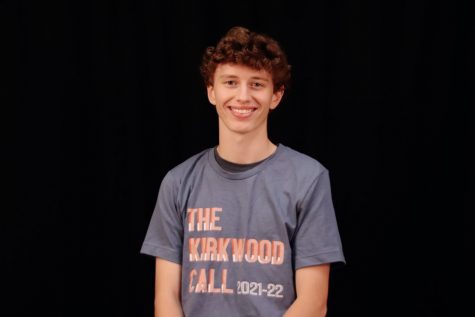
he/him
Hobbies and Interests: Cross country, racquetball, tennis, golf, the Cardinals, Blues, Hiking, being outdoors, country music
Favorite Song:...
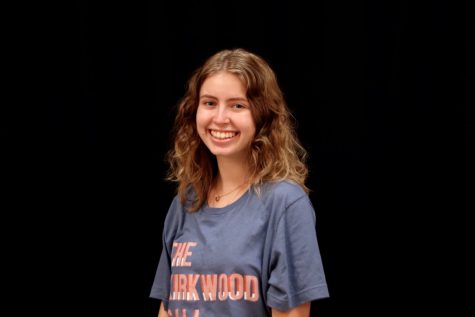
she/they
Hobbies and Interests: Music (especially songwriting), painting, nature, spending time with loved ones, stalking people on Spotify and taking...



